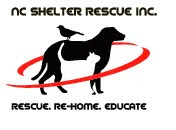So you feel uncomfortable about an animal transport that you witnessed and you don't know who to contact and where to start, let's start with the USDA and APHIS.
Animal Rescue groups or even those portraying themselves as an animal rescue group or animal transporter still need to follow the basic laws in place to protect the animals they all proclaim they are working to save. However these day's we have an issue with Puppy Flippers, Class B Dealers and rescue for profit are all now hiding behind the animal rescue name and claim for a fast buck and their new household income.
Shelter dogs and cat's being sent from one state to another are required to have a health cert, water bowls, water, leashes, a log book of the travel time and a USDA Animal Transport License are all to be on board when these transports take place. These are all precautions put in place to put the animals health and care first, something most of these mass animal transports do not do on their own.
I personally am disgusted at the lack of care for these animals while on these state to state transports and I know many others are as well but people just do not know where to start to alert an official office let alone how to place a formal complaint. So here are just a few pointers.
Screen shot all of your evidence or questionable activity and save it to your computer. Gather as much information on the animal transport, the departing location, arriving location, how many animals are on board, where they might have come from ( list a county animal shelter if that's the location) and the people names or groups that are involved as you can.
You can either file a complaint with the USDA/APHIS at: http://www.aphis.usda.gov/animal_welfare/aw_complaint_form.shtml
Or you can email them directly via the contact list listed below. You may need to click on the picture to enlarge the print for your better view.
This is only the first step in how to help the animals forced on these transports. Please stay tune for the next 2 blogs on what other departments need to be contacted and how you can help clean up the animal transport world that so many have jumped in the last few years as their new way of income. Something the IRS is also interested in due to all the undeclared taxable income for so many who claim to be unemployed and are receiving state benefits thru their local Health and Humane Services Departments.









